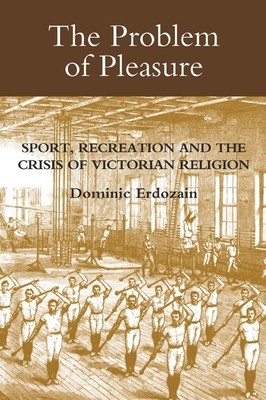
- We will send in 10–14 business days.
- Author: Dominic Erdozain
- Publisher: Boydell Press
- ISBN-10: 1843835282
- ISBN-13: 9781843835288
- Format: 16.3 x 23.4 x 2.5 cm, kieti viršeliai
- Language: English
- SAVE -10% with code: EXTRA
Reviews
Description
The book combines intellectual, cultural and social history to address a major area of encounter between Christianity and British culture: the world of leisure.
This book traces the rise and fall of the evangelical movement, the powerhouse of Victorian religion, via its preoccupation with pleasure. Victorian evangelicalism demonstrated an ability to excite the affections but also a corresponding suspicion of worldly pleasures. Suspicion developed into hostility, and a movement premised on freedom became coercive and alienating. The crisis of Victorian religion began.It is generally held that the mid-Victorian turn to recreation and sport solved the problem, 'justifying God to the people' through cricket, cycling and football. This book argues otherwise - that the problem of pleasure was inflamed by the ecclesiastical remedy. The problem of overdrawn boundaries between church and world gave way to a new and subtle confusion of gospel and culture. Historians have praised the mood of engagement but the costs were profound. In fact, sport became the perfect vehicle for that humanistic, 'unmystical' morality that defines the secularity of the twentieth century. Secularisation did not wait for the Dionysian rebellions of the 1960s: it emerged - almost a hundred years earlier - in the Victorian transformation of religion into ethics. Central to the process was the problem of pleasure. DOMINIC ERDOZAIN is Lecturer in the History of Christianity, King's College London
EXTRA 10 % discount with code: EXTRA
The promotion ends in 22d.18:44:08
The discount code is valid when purchasing from 10 €. Discounts do not stack.
- Author: Dominic Erdozain
- Publisher: Boydell Press
- ISBN-10: 1843835282
- ISBN-13: 9781843835288
- Format: 16.3 x 23.4 x 2.5 cm, kieti viršeliai
- Language: English English
The book combines intellectual, cultural and social history to address a major area of encounter between Christianity and British culture: the world of leisure.
This book traces the rise and fall of the evangelical movement, the powerhouse of Victorian religion, via its preoccupation with pleasure. Victorian evangelicalism demonstrated an ability to excite the affections but also a corresponding suspicion of worldly pleasures. Suspicion developed into hostility, and a movement premised on freedom became coercive and alienating. The crisis of Victorian religion began.It is generally held that the mid-Victorian turn to recreation and sport solved the problem, 'justifying God to the people' through cricket, cycling and football. This book argues otherwise - that the problem of pleasure was inflamed by the ecclesiastical remedy. The problem of overdrawn boundaries between church and world gave way to a new and subtle confusion of gospel and culture. Historians have praised the mood of engagement but the costs were profound. In fact, sport became the perfect vehicle for that humanistic, 'unmystical' morality that defines the secularity of the twentieth century. Secularisation did not wait for the Dionysian rebellions of the 1960s: it emerged - almost a hundred years earlier - in the Victorian transformation of religion into ethics. Central to the process was the problem of pleasure. DOMINIC ERDOZAIN is Lecturer in the History of Christianity, King's College London


Reviews